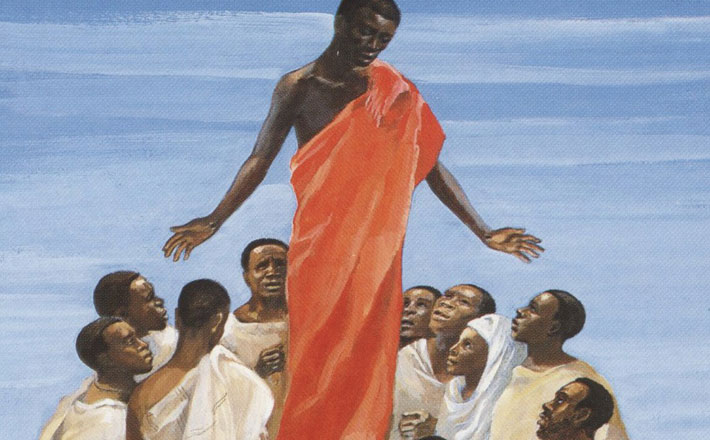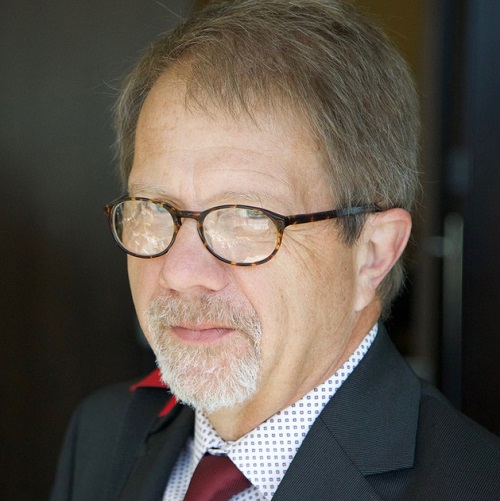Commentary on Psalm 47
Affirmations of faith are varied across cultures and traditions.
How one articulates what is central or core to their belief system varies depending on a countless range of factors — age, gender, knowledge, experience, and so on. Here the Psalmist breathes in and breathes out what is foundational to the tradition. It is an air of life, a breath of heaven, and a breeze that coalesces with the hearts and minds of the people of God. The Psalmist speaks the word that calls to mind that which is already known — God is the source and preserver of all.
In five verses the Psalmist provides a miniature Torah — God is creator, preserver, and lawgiver and as such is the one with whom one can align their trust, offer their praise and worship, and obey God’s laws. The God who creates is the one who creates possibilities when none are evident. The God who gives laws provides them to people so that they might flourish in every way that a human being can flourish. The one who is an ever-present help is the one who can give certainty to people who live in places that are uncertain, unhealthy, and latticed with threats to their own security.
Five verses are breathed out that speak of a familiar reality that is somehow beyond familiarity. The Lord reigns and the world is a secure place on which people may thrive. Yet the experience of the world suggests that it is anything but secure or be regarded as a place for thriving. For people of any age there is always the common song of war, rumors of war, and threats to human stability and thriving. Here the Psalmist utters five short stanzas of affirmation about God and the order of the world in which people live.
Yahweh is melek — king. For people in contemporary North America the notion of a king may not resonate well. It brushes against our ears like rough sandpaper and may not offer a depth of comfort. A democracy is not envisioned here. It is the clear order of a king that has everything in control. This is a faith statement that can grab hearer’s imaginations and roil settled waters.
God is king. But the king’s garments defy simple explanation. The writer doesn’t provide details. One word in Hebrew is ge’ah, which is derived from gaah, is translated into English as “majesty.” Yet one might also translate the word as “exalted.” If so, perhaps the word might connect hearer’s imaginations with the thought of God dwelling on a high mountain or in the heavens themselves and wrapped in a garment of exaltation. One might also conceive of the garment as the entire creation that this creator king has made — full of majesty and armed with strength. The one who sets planets in orbit around suns and suns in their courses around galaxies is surely one who is strong enough to deal with the day-to-day events of the people of God.
What difference might it make to anyone that God is robed in majesty and armed with strength? If God wasn’t dressed in majesty and strong enough to face any adversary, could this God be one worthy of praise or worship? The Psalmist makes a declaration that assures uncertain feet that the ground on which they walk is secure. Perhaps this is enough to face the trials and difficulties associated with the present or foreseeable future. Maybe that is enough of an assurance that God’s capacity is greater than any other force’s capacity to thwart. It can breathe confidence into uncertain hearts.
Anyone who has spent time near or on the ocean knows something of its strength and the audible volume of waves as they crash on the shore. The sound can be deafening. Generated by wind and tidal movement ocean waves can reach great heights before colliding with shorelines. The weight of an average wave is massive. The weight of water is approximately 8 lbs. per gallon. In a 2011 New York Times article entitled “The Destructive Power of Water” Kenneth Chang wrote, “A cubic yard of it, filling what at first glance seems a modest volume of 3 feet by 3 feet by 3 feet, weighs nearly 1,700 pounds, as much as the Smart micro car. And when water is moving at 30 or 40 miles an hour … the heaviness of water turns deadly. Imagine 1,700 pounds hitting you at that speed, and each cubic yard of water as another 1,700 pounds bearing down on you. The destructiveness of a tsunami is not just one runaway car, but a fleet of them.”1
The people of the Mediterranean world were familiar with the power of the sea and the people of Israel generally were not known as seafaring people. The ocean or sea would have been a place of threat from a force greater than any foreign army. It was stronger than any one person or army of persons. The threat of death could echo in the waves as they crashed on the shore. Their sound could cause fear to rise and knees to weaken. But here the writer is intent on reflecting on the voice of the waves themselves. What do they say? What does this part of creation say about the one who created them?
The sea wave voice speaks a truth deeper than the depths of the ocean — God on high is mighty. God is strong. Here the voice of strength speaks to that which is strength. The artist hears the thunder of waves pounding rocks into sand and their voice proclaims a greater strength than that which they themselves possess.
The capacity of an artist — psalm writer — to hear something and reinterpret it for reflection is pressed to the front in these five verses. Questions could easily be the framework on which the poetry rests. The five verses in a sense could be read like a catechism. Who is God? God is king, powerful, and eternal. How strong is God? God is creator and mightier than the power of the ocean. Are God’s laws certain? God’s laws stand firm. Can we trust our life with this God? Is this God eternal? Is this God holy? In a sense, the questions that give rise to the Psalmist’s statement of faith is a declaration of assurance to a people who might be asking similar questions, but be afraid to speak them aloud. The waves speak affirmations of truth that combine with the Psalmist’s poetry to declare truths about the identity of the God who reigns and is worshipped by the people of God. This is a word of assurance that can breathe hope and comfort into lives that long for both.
1 NY Times, March 12, 2011 http://www.nytimes.com/2011/03/13/weekinreview/13water.html?_r=0


May 5, 2016